Chapter 18
Foreign Policy
By Boundless

A country's foreign policy includes all of the policies it develops to pursue its national interests as it interacts with other countries.

National security policies, designed to protect the state, include military security as well as non-military security.
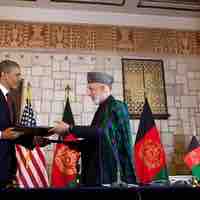
Diplomacy refers to the art and practice of conducting negotiations and developing relationships between states.

Humanitarian policies are ostensibly intended to help other countries, and include human rights policies, aid, and interventions.

Economic prosperity is necessary to achieve foreign policy goals, and despite the 2008 recession, the U.S. economy is still powerful.
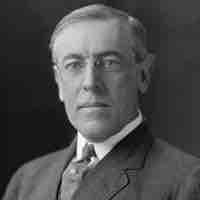
The president is very influential in US foreign policy, and directs the nation's war-waging, treaties, and diplomatic relations.
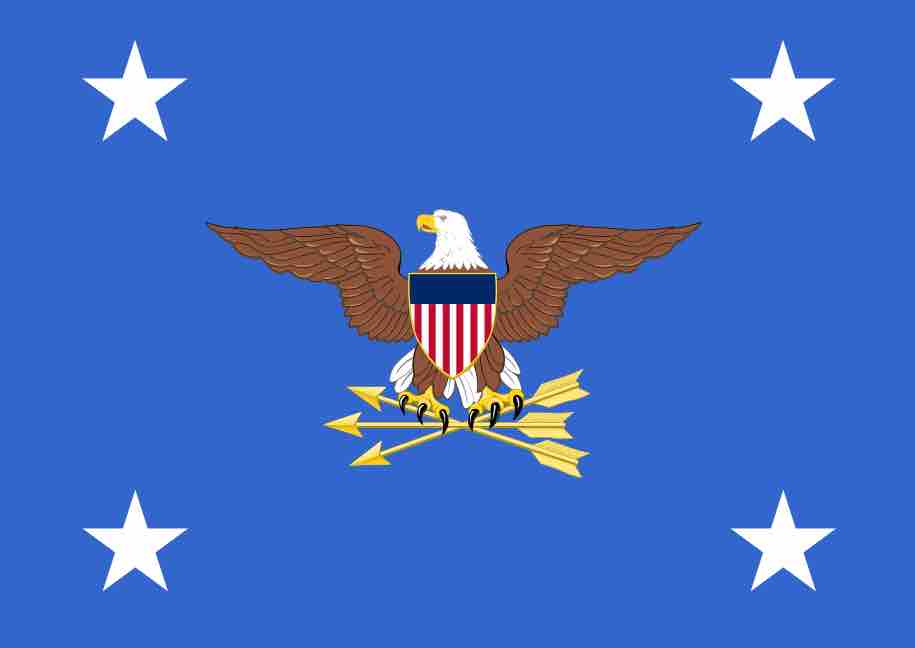
The secretary of state and secretary of defense play key roles in assisting the president with foreign policy.
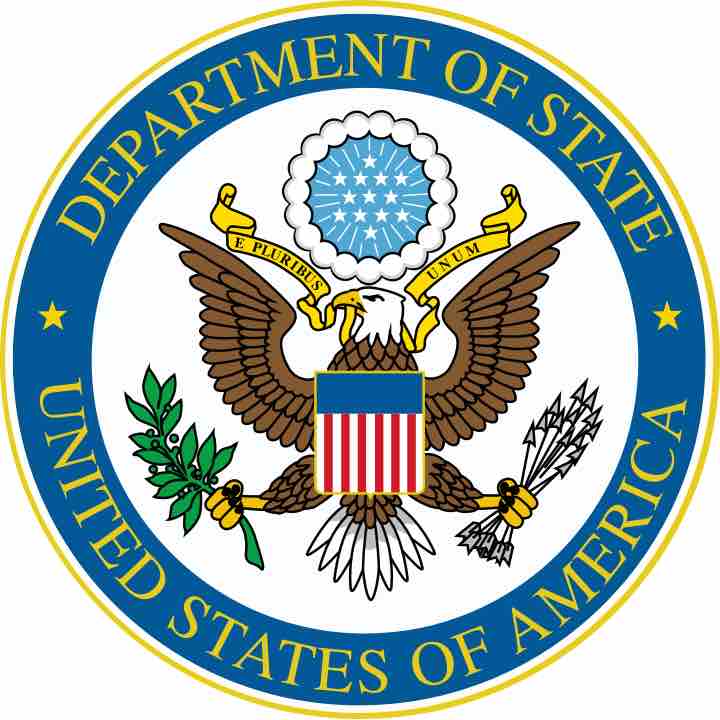
Prominent bureaucratic organizations shaping U.S. foreign policy include the State Department, the Defense Department, and the CIA.

Two constitutional clauses, the Constitution and Foreign Commerce Clause and the War Power Clause, give Congress foreign policy powers.

Foreign policy interest groups are domestic advocacy organizations which seek to influence the government's foreign policy.

The media has changed how citizens perceive and approach about U.S. Foreign Policy in the 20th century.

Isolationism or non-interventionism was a tradition in America's foreign policy for its first two centuries.
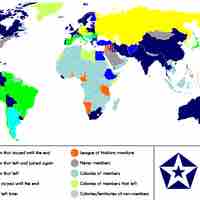
The League of Nations was created as an international organization after WWI.

Although isolationists kept the U.S. out of WWII for years, the interventionists eventually had their way and the U.S. declared war in 1941.

After WWII, the US's foreign policy was characterized by interventionism, which meant the US was directly involved in other states' affairs.
Truman's Containment policy was the first major policy during the Cold War and used numerous strategies to prevent the spread of communism abroad.

Détente was a period in U.S./Soviet relations in which tension between the two superpowers was eased.
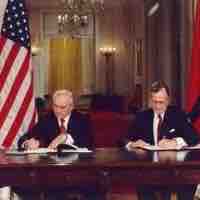
The post-Cold War era saw optimism, and the balance of power shifted solely to the United States.
The War on Terror refers to an international military campaign begun by the U.S. and the U.K. after the 9/11 terrorist attacks.

U.S. foreign policy is characterized by a commitment to free trade and open borders to promote and strengthen national interests.
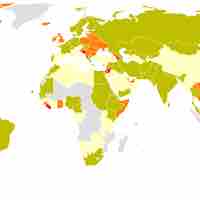
Immigration and border security are two important issues for United States policy.

The threat of terrorism is one of the greatest challenges facing the United States and the international community.
The proliferation of nuclear weapons, explosive devices which derive force from nuclear reactions, is a key challenge of foreign policy.

Particularly since the beginning of Operation Iraqi Freedom in 2003, U.S. relations with Iraq have been central to its foreign policy.

The relationship between the United States and Afghanistan has become an integral aspect of U.S. foreign policy.
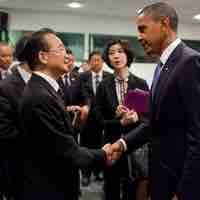
Three issues of particular importance in Chinese-American relations are economic trade, the contested status of Taiwan, and human rights.

The conflict between the State of Israel and the Palestinians is an important issue affecting American and international policy.
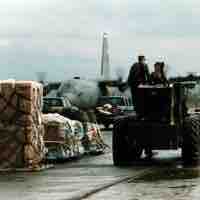
Humanitarian aid is material or logistical assistance in response to crises including natural and man-made disasters.

Standard diplomacy involves government-to-government communication; modern diplomacy has begun to emphasize public diplomacy as well.
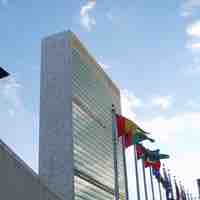
The United Nations is the most important and influential international, intergovernmental organization.

The international monetary structure involves international institutions, regional trading blocs, private players, and national governments.
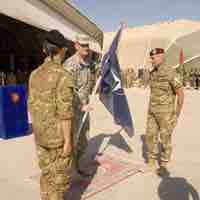
A collective military force (when multiple countries pool their militaries) involves both collective security and collective defense.

States can give economic aid to help another country, or implement economic sanctions to try and force another country to change policies.

Arbitration is a form of dispute resolution that can be used to resolve international commercial, investment, and interstate conflicts.